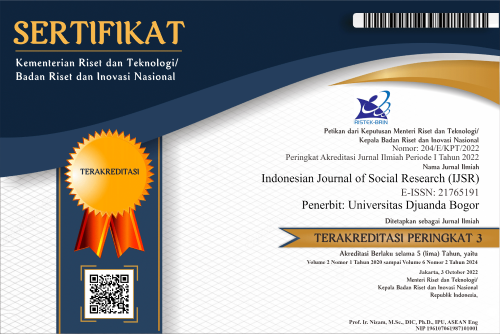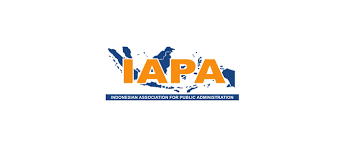Instruction Of Science in Rural Junior High School
Abstract
The teacher is an essential component of learning. Learning that is often focused by the government is learning in urban schools. Even though rural schools also have the same right to consider. Longer distances and access to schools that are more difficult to reach causes a lack of attention in rural areas schools. Learning in rural areas also requires attention to improve the quality of teaching. Knowing learning activities in rural schools is very important because it will understand what learning needs to be improved. The purpose of the research is to find out how teaching science in rural schools. This research uses mixed methods with the Taxonomy Development Model research design. The phase of QUAL is carried out to identify important variables. The development of a taxonomy or classification system, the development of theories that are not yet stable, and supporting it is a test in the phase of QUAN to obtain more thorough study results. The findings of this study illustrate that learning begins with answering questions, so students are enthusiastic. The next learning activity showing films about the reproduction of students was very excited about learning. The obstacle found in learning is the lack of preparation in the learning that is done so that time is wasted to condition the video playback.
References
Ahmed, A. K. (2013). Teacher-centered versus learner-centered teaching style. Journal of Global Business Management, 9(1), 22.
Andrew, V. A. (2012). Using Learning Study to improve the teaching and learning of accounting in a school in Brunei Darussalam. International Journal for Lesson and Learning Studies.
Andriani, D. E. (2010). Mengembangkan profesionalitas guru abad 21 melalui program pembimbingan yang efektif. Jurnal Manajemen Pendidikan UNY, 111985.
Björk, M., & Pettersson-Berggren, G. (2015). Teachers developing teaching: A comparative study on critical features for pupils’ perception of the number line. International Journal for Lesson and Learning Studies.
Carlgren, I. (2012). The learning study as an approach for “clinical” subject matter didactic research. International Journal for Lesson and Learning Studies.
Constitution of Republik Indonesia. Number 14 Year 2005 about Teachers and Lecturer
Creswell, J. W., & Clark, V. L. P. (2017). Designing and conducting mixed methods research. Sage publications.
Davies, M. (2015). A model of critical thinking in higher education. In Higher education: Handbook of theory and research (pp. 41–92). Springer.
Dudley, P. (2012). Lesson Study development in England: From school networks to national policy. International Journal for Lesson and Learning Studies.
Elliott, J. (2012). Developing a science of teaching through lesson study. International Journal for Lesson and Learning Studies.
Fang, Y., Lee, C. K., & Yang, Y. (2012). Developing curriculum and pedagogical resources for teacher learning: A lesson study video case of “Division with Remainder” from Singapore. International Journal for Lesson and Learning Studies.
Gierlinger, E. M., Spann, H., & Wagner, T. (2016). Variation theory in Austrian initial EFL teacher education: Potentials and challenges. International Journal for Lesson and Learning Studies.
Kemendikbud. (2016). 7 provinsi Raih Nilai Terbaik Uji Kompetensi Guru 2015. Diakses dari www. Kemdikbud.go.,id pada rabu, 16 Mei 2018 Jam 12.59.
Kurniawan, A. F., Murniati, N. A. N., & Khoiri, N. (2011). Model Pengembangan Kompetensi Profesional Guru Fisika Kota Semarang Pasca Sertifikasi Melalui MGMP. Jurnal Penelitian Pembelajaran Fisika, 2(2).
Norwich, B., Dudley, P., & Ylonen, A. (2014). Using lesson study to assess pupils’ learning difficulties. International Journal for Lesson and Learning Studies.
Pluck, G., & Johnson, H. (2011). Stimulating curiosity to enhance learning. GESJ: Education Sciences and Psychology, 2.
van Halem, N., Goei, S. L., & Akkerman, S. F. (2016). Formative assessment in teacher talk during lesson studies. International Journal for Lesson and Learning Studies.
Yamaji, A. (2016). Teacher discourse supporting peer collaboration in mathematics. International Journal for Lesson and Learning Studies.
Yuk, K. P. (2012). Critical conditions for pre‐service teachers’ learning through inquiry: The Learning Study approach in Hong Kong. International Journal for Lesson and Learning Studies.
Copyright (c) 2021 Indonesian Journal of Social Research (IJSR)

This work is licensed under a Creative Commons Attribution-ShareAlike 4.0 International License.
The Authors submitting a manuscript do so on the understanding that if accepted for publication, copyright publishing of the article shall be assigned/transferred to Indonesian Journal of Social Research (IJSR) Universitas Djuanda as Publisher of the journal. Upon acceptance of an article, authors will be asked to complete a 'Copyright Transfer Agreement'. An e-mail will be sent to the corresponding author confirming receipt of the manuscript together with a 'Copyright Transfer Agreement' form by online version of this agreement.
Indonesian Journal of Social Research (IJSR) Universitas Djuanda, the Editors and the Editorial Board make every effort to ensure that no wrong or misleading data, opinions or statements be published in the journal. In any way, the contents of the articles and advertisements published in the Indonesian Journal of Social Research (IJSR) Universitas Djuanda are sole and exclusive responsibility of their respective authors and advertisers.
Remember, even though we ask for a transfer of copyright, our journal authors retain (or are granted back) significant scholarly rights as mention before.
The Copyright Transfer Agreement (CTA) Form can be downloaded here: Copyright Transfer Agreement-IJSR 2020
The copyright form should be signed electronically and send to the Editorial Office e-mail below:
Dr. Rasmitadila, M.Pd (Editor-in-Chief)
Universitas Djuanda
Jl. Tol Jagorawi No.1, Ciawi, Kec. Ciawi, Bogor, Jawa Barat 16720
Website: http://journal.unida.ac.id/index.php/IJSR/index
Email: ijsr@unida.ac.id





4.png)



